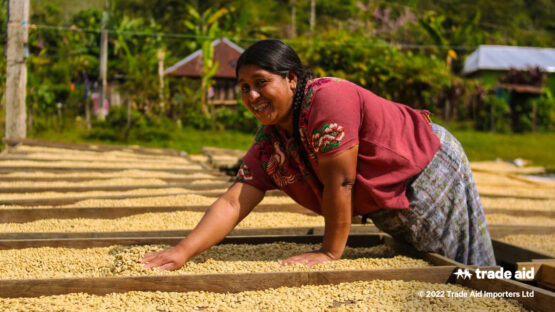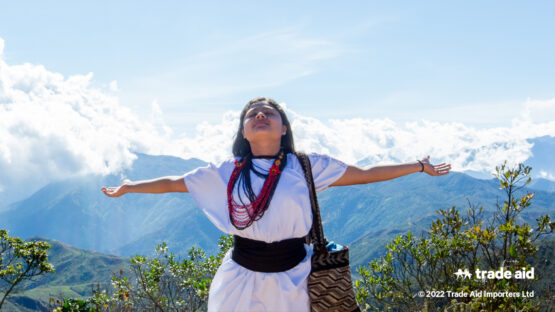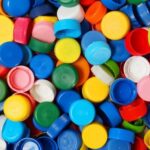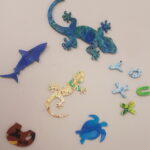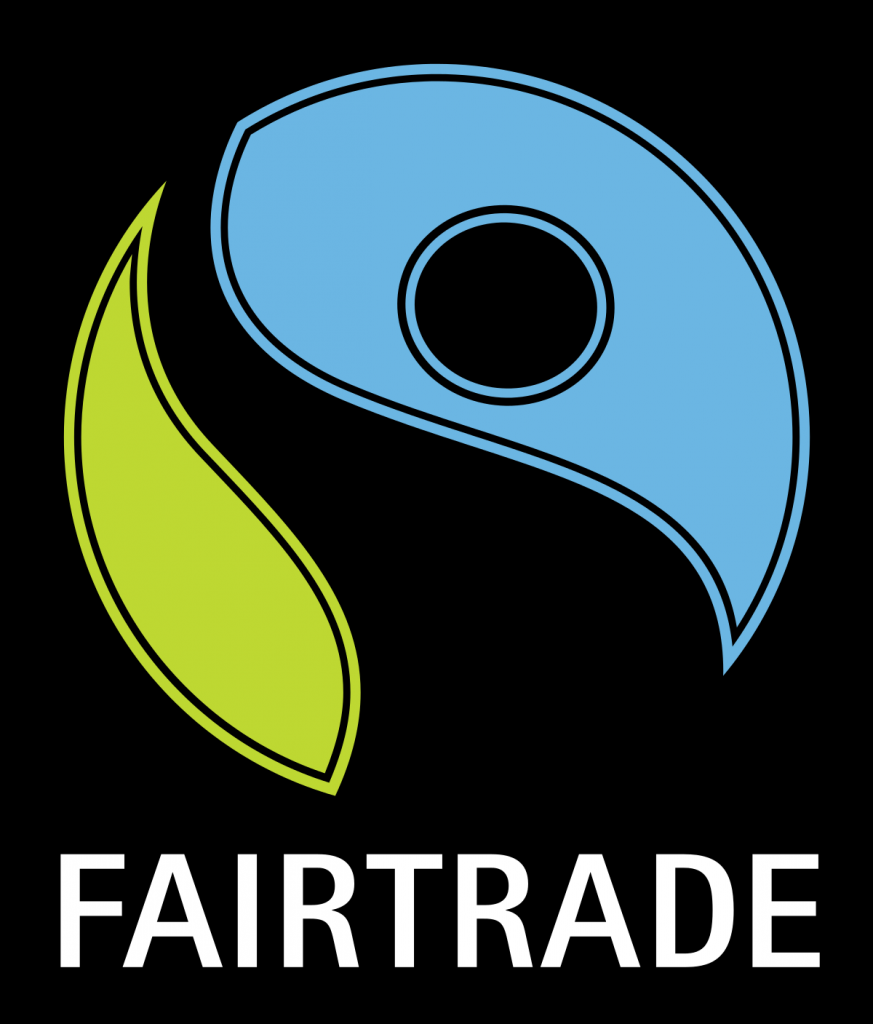We give a toss...
We are doing our bit for:
Waste
The majority of our packaging is reused. We collect and divert more roadside waste than we produce in the business.

Carbon
We roast and deliver without the usual recourse to fossil fuels. Our upcycled and reengineered roaster (from 1974) is electrically heated. Our delivery vehicles are banana and battery powered.
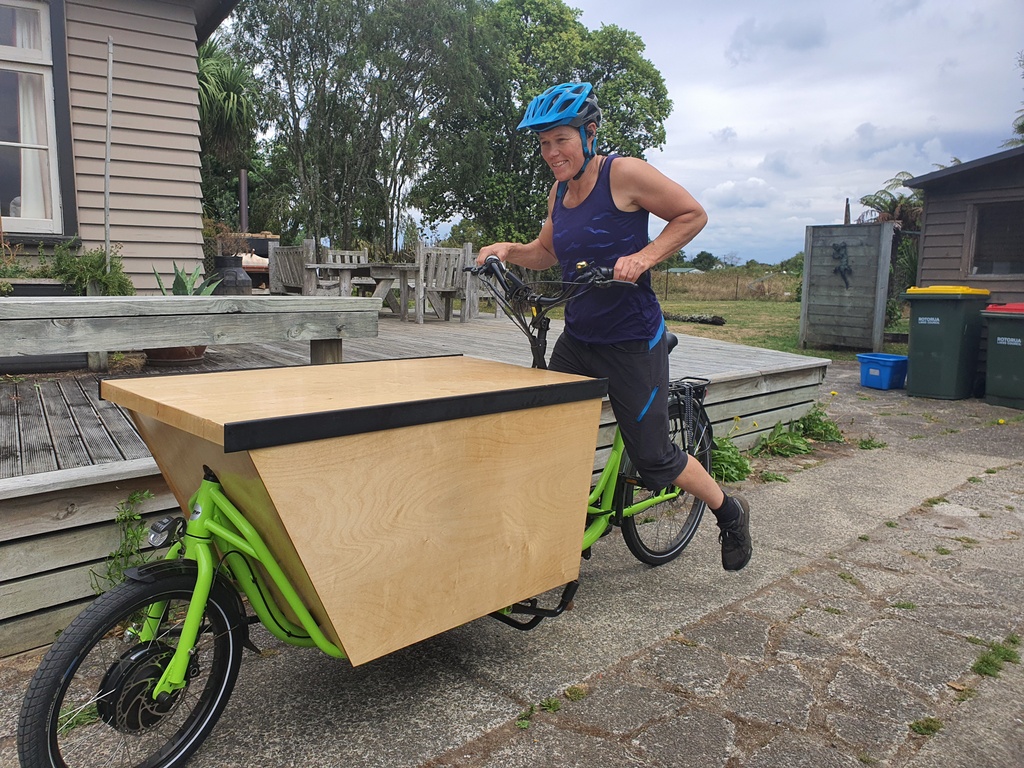
People
We support local businesses and community groups. Our coffee is sourced responsibly to ensure the wellbeing of the people and land who grow it.
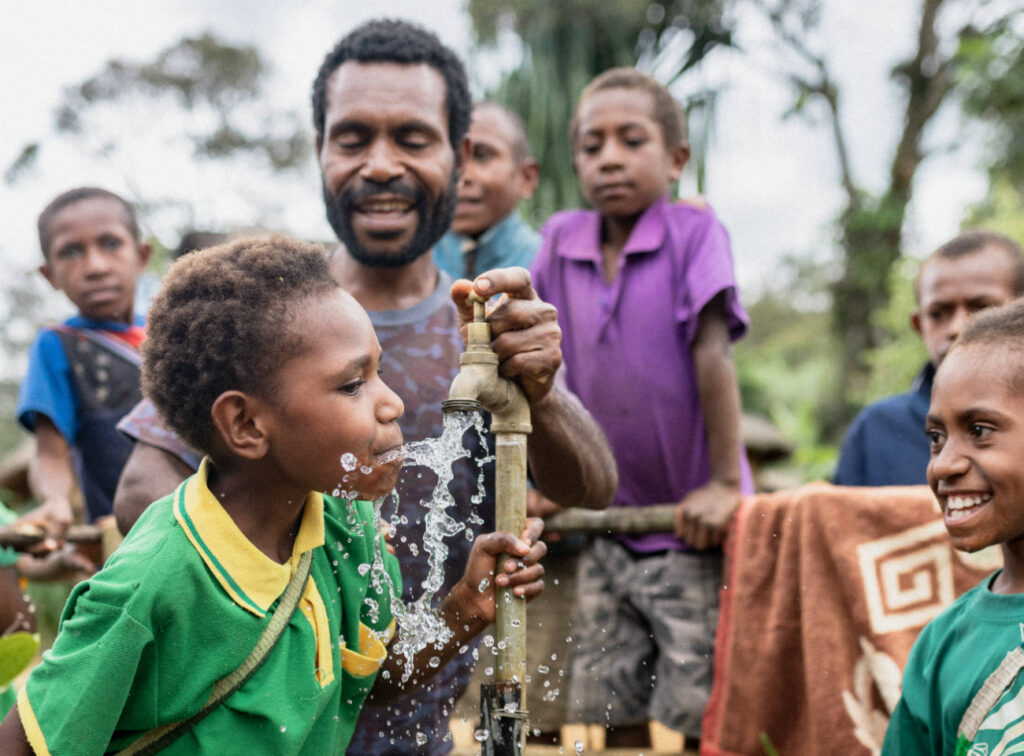
Planet
We have calculated our carbon footprint for 2022 (2.12 TCO2e). We donated to Trees That Count enough for them to plant native trees to absorb three times that amount of carbon.
going circular
Jarology
Working locally allows us to close the loop on a few waste streams. Mourea Coffee upcycles jars by cleaning and relabelling. These are washed and reused again and again. The lids will eventually give out from use and overtightening but the jars can have a long life. We put our permanent labels on the glass and these will survive the dishwasher. There is a personalised label on the lid with customer, bean type and roast date. These are removable paper and can be composted.
Feel free to remove the lid labels. Please leave our plastic labels on the glass in place. If upcycling jars please either remove label AND glue or leave all on for us to do this. For Fix & Fogg and Raglan Coconut yogurt, filling the jar with hot water before removing the label softens the glue. Cream cleanser (jiff) and a coconut scrub or turps will remove the last of the glue. Some paper labels (like gherkin jars) will come off with a wee soak in cold water.
Bottle caps
 In Rotorua #2 (HDPE) bottle caps are too small to be recycled via our curbside system. We collect these from our customers in their swappa jars (easy), weed out some of the wishcycling (lids with moving parts, wine caps, lids with silicon liners and everything that doesn’t have a #2 on it) and batch send them to Envirohub Bay of Plenty in Tauranga. They chip them and make them into better things than landfill.
In Rotorua #2 (HDPE) bottle caps are too small to be recycled via our curbside system. We collect these from our customers in their swappa jars (easy), weed out some of the wishcycling (lids with moving parts, wine caps, lids with silicon liners and everything that doesn’t have a #2 on it) and batch send them to Envirohub Bay of Plenty in Tauranga. They chip them and make them into better things than landfill.
We do this for the love as there is no money in it for any of those involved. We are really appreciative when the lids supplies are CLEAN AND DRY and are only ones with a #2 triangle on them. Milk residues can produce some impressive mould mountains by the time they get to Tauranga.
Get more inspiration at Precious Plastics Tauranga.
Roadside rubbish
On a bike you see a lot of things you’d rather not on the side of the road. It can be a bit soul-destroying but we have taken inspiration from Kim from over the hill. She makes a Saturday morning of it occasionally and clears a section of road of litter. She recycles what she can. The scrap cash earned from roadside aluminium cans and metal rescued from electronics and machinery thrown away at work is donated to Trees That Count. This has so far planted more than 1000 trees. We think she is a legend. So we collect more roadside rubbish than is generated by the business and ensure it is split and disposed of responsibly. Apart from those good vibes, by recycling an aluminium can you can save up to nine times its weight in carbon. Woohaah!
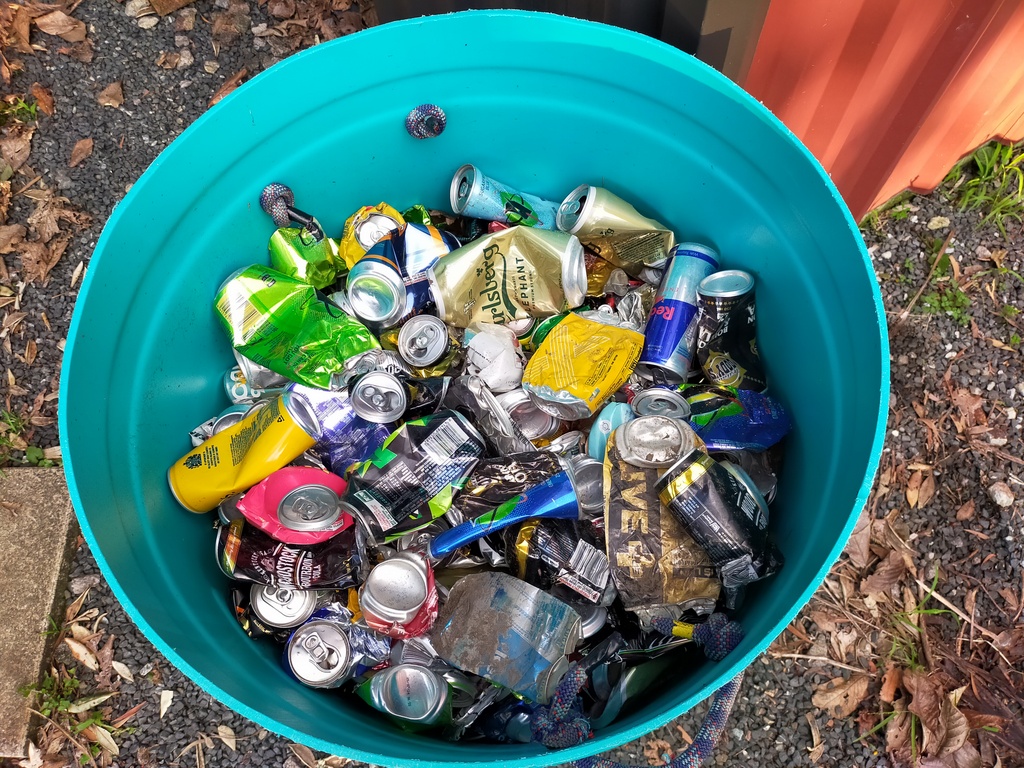
More coffee less carbon
Roasting
Meet Bertha: the electric Probat coffee roaster built in Germany in 1974 that we acquired in 2021. The principles of a drum roaster are pretty simple. Probat have been making coffee roasters since the mid 19th century when they were a cast iron sphere on chain that you hung over a fire. Most coffee is roasted using LPG or some other fossil fuel. In the face of climate change, there is an increasing trend to use electricity. Especially in New Zealand where the bulk of our electricity is generated from non-fossil fuel energy sources, it makes great sense to roast with electricity. We have made a few modifications to the machine for better control and more consistent roasting. To further reduce our footprint, we can consider when we roast. Avoiding peak times will reduce the carbon associated with this electricity – although this is not captured in normal carbon accounting. We also hope that further modifications will increase our efficiency i.e. more coffee per kWhr.
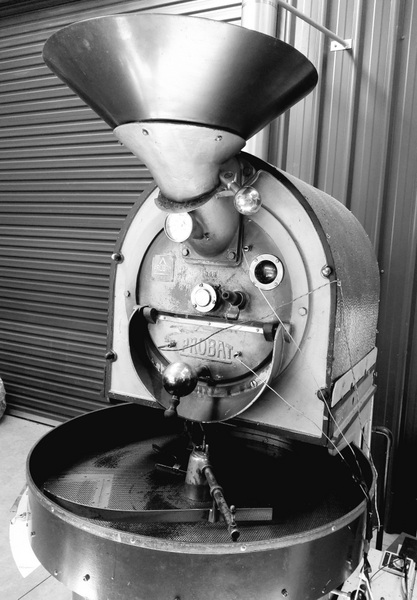
Zoom zoom

There are myriad reasons to ride bikes. Carbon is one of them. The mental and physical health of the rider and those around them are more reasons.
The joy is multiplied when you have a bike that can carry a hundred kg of coffee!
We think our chief delivery vehicle is a force for good in Rotorua, drawing smiles and toots from the adults, big eyes from the kids and high eyebrows from the teenagers.
Thanks heaps to Gaz from NZO for his excellent drawing skills (so I don’t have to pose for photos) and providing the best pants (short and long) in the universe, designed and tested in Rotorua with love.
E-Bongo
Is it a bird? Is it a plane? No. It is Mourea’s first electrified 1975 Mazda Bongo!
Sometimes there is too much coffee for the bike. Fortunately, we have a genius in Mourea who has lovingly upcycled a 1975 Mazda F1000 van into a 21st century dream machine by installing and commissioning the innards of a wrecked 2012 Nissan Leaf.
This is a bit of an engineering and perseverance triumph and makes for a vehicle that doesn’t just have lower emissions from the tailpipe (no tailpipe) but less embedded carbon and way better pickup than your standard classic car.
And it is cute too!
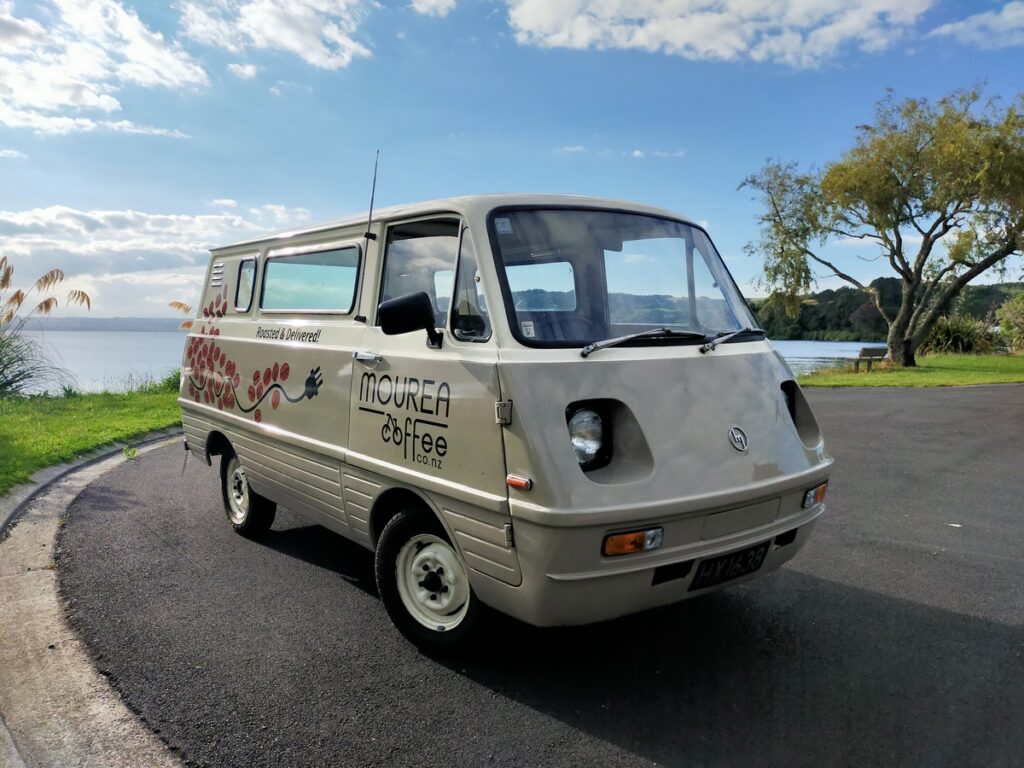
Boring carbon accounting bit
This is the nuts and bolts of it. Because of all that peddling and electric roasting … 62% of our emissions are from sea and road freight of green coffee beans to Mourea. If you don’t subtract credits bought by our electricity retailer to offset the carbon involved in roasting coffee and charging the e-bike, electricity makes up 29%.
We can do very little at this stage to reduce the footprint associated with inbound freight. We do have some control over how we use electricity. More efficient roasting means fewer kWh per kg of coffee and using electricity outside of peak hours (early morning and early evening) is associated with less carbon – although this is not captured in the accounting.
Mourea Coffee Company Carbon Footprint 2023
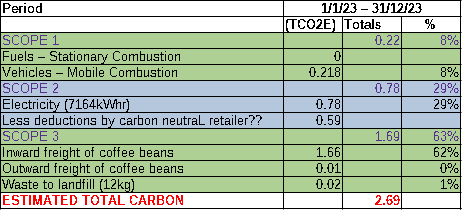
In 2024, we have chosen to donate the approximate equivalent of 8 TCO2E to Trees That Count to balance our carbon impact from 2023 in some way. They are not certified to provide carbon credits and carbon neutral status BUT they plant native trees in New Zealand and we believe provide a more authentic and useful boost for both climate and biodiversity than the certified schemes.
Love your coffee farmer
Coffee is part of the industrialised agricultural complex, grown in the developing world and consumed in the developed world. It is traded on stock exchanges where market fluctuations can have a massive effect on the lives of the people who produce it. Buying Fair Trade coffee provides fair and consistent income to these farmers. It also often provides for infrastructure and education. Buying organic or Rain Forest Alliance reduces the environmental impact of coffee production. These certifications and the higher price paid for beans also results in a more consistent and higher quality coffee.
Find out more about these organisations by following the links below.
